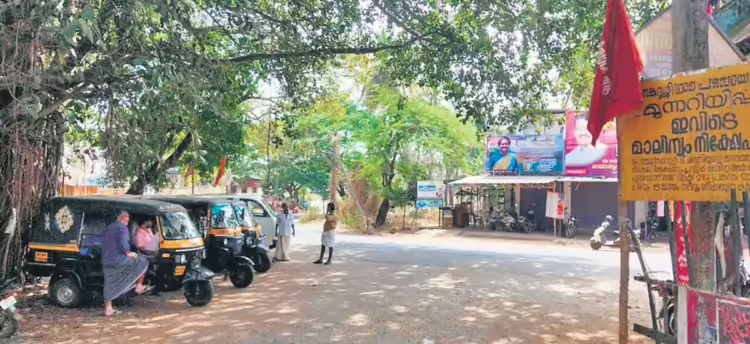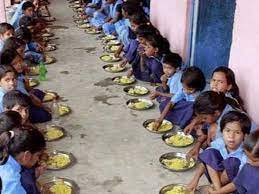Welcome to Alathur, Kerala, with its brutal truths
Life in Thenkurissi is as sluggish as it is in any hamlet within the constituency of the Alathur parliament. Few individuals are out in public as others seek shade from the intense heat. around the local intersection, around 11 a.m., with temperatures rising beyond 38 degrees Celsius, a few autorickshaws are parked under a big banyan tree, waiting for clients and small sellers.

The shape-shifting protagonist character in the Malayalam movie Odiyan takes viewers to a fantasy universe, while Thenkurissi exposes the brutal reality of everyday existence for common people in front of the candidates in Alathur.
In the traditionally Left stronghold, where UDF’s Ramya Haridas is vying for a second term in office, the LDF has assigned Minister K Radhakrishnan to reclaim the reserved seat. T N Sarasu is the NDA’s candidate.
Ramya defeated P K Biju of the CPM, who was running for a hat-trick, in 2019. In contrast, the Left front won all seven assembly segments within the Lok Sabha constituency in the state elections of 2021, regaining control of the political landscape. Distributing agent Bijoy said, “Ramya and Radhakrishnan are in the running.” “Ramya has done a good job. Here, the BJP is not a powerful force.
Nonetheless, the BJP won three wards in the most recent municipal elections. BJP’s vote share is rising with every election, according to autorickshaw driver Vighnesh. He claims that Ramya is really personable. “She has put up high-mast lighting in all 17 wards and attends programs. However, since Radhakrishnan is a minister in the ministry, the tendency is in his favor. People see Shafi Paramblil in the same manner that they do Ramya. Ramya suffers as a result of Shafi’s move to Vadakara, he claims.
Salim, who has grown mangos for more than 20 years in Muthalamada, Kerala’s own “mango city,” claims that the UDF is not doing much work at the local level. “CPM employees are swatheing every home. The CPM party office here will be staffed by a minimum of ten people. However, the Congress party office is no longer open, he claims.
Muthalamada’s mango growers have suffered greatly as a result of crop loss due to unpredictable weather and reported lack of support from government agencies.
Salim predicts that Muthalamada would lose between Rs. 2,000 and Rs. 3,000 crore per day this year. He notes that there are now just 1,400 mango growers in the area.
“The main cause is climate change. The rain in November brought down the mango trees that had bloomed. Salim laments, “They flowered in December, but the fruits were small and the blossoms were weak.”
According to him, his organization had borrowed around Rs 5 lakh from a Maharashtran businessman. The nation’s mango season often begins at Muthalamada, thus we have to provide them the mangoes at the beginning of the season. This time, in order to pack and send the mangoes to Maharashtra, we had to borrow them from Andhra Pradesh and Karnataka,” he explains.
The farmers attribute their miserable circumstances to the agricultural department’s unfriendly attitude, the rising cost of labor, and the pace at which fertilizers are applied.
“We received no advice on the amount and use of pesticides from the department authorities. We were compelled to purchase pesticides from Tamil Nadu-based private businesses. Additionally, laborers, the most of whom are migrant workers, may have sprayed a significant amount of pesticide and insecticide on the mangoes, according to Salim.
The fact that 60% of the villagers work in construction makes it evident that the region has not developed its infrastructure. Women have to turn to private lenders for loans due to a lack of employment. And these ladies are working in little stores to pay them back.
Only in the evenings does life pick up here because of the little reprieve from the heat. Some people line up in front of the beverage store as they arrive at the intersection, according to another autorickshaw driver named Kunchan Kutty.
The condition of the toddy stores in the area would startle visitors from the southern areas. There’s just boiled egg accessible as a premium item. The stores, like the one in Kunissery, are tiny shelters with one or two desks and seats. Villagers visit the stores at midday without any inhibitions to sip palm toddy, which aids in bodily cooling.
As someone who has operated a toddy business for over ten years, Ponnu claims that “visiting a toddy shop is not a social stigma here.”
But when Indian-made foreign booze became widely available, there are just ten patrons left. The reduction in palm toddy yield may also be attributed to climate change. A decade or so ago, we used to get 150 liters. It is already down to fifty. The price of a liter of toddy is Rs 100.
Kunju, a native of Koduvayur, has struggled throughout his life as an agricultural laborer as a member of the communist movement against oppressive landowners from higher castes and classes and difficult living conditions.
At two in the morning, we were to pasture cows. After that, we had to assist our parents in the rice paddies. We would hardly sleep for three hours at a time. I was paid one rupee a day to graze a cow. He remembers that we also traveled to Kalpetta in Wayanad to labor on coffee farms from 7.30 am to 5.30 pm.
Kunju owns two cows and an acre of farmland after 65 years of hard labor. Fortunately, his son works in the private sector and both of his daughters are employed by the government. Then Kunju rode off on his bicycle, leaving this reporter behind. Life carries on.







